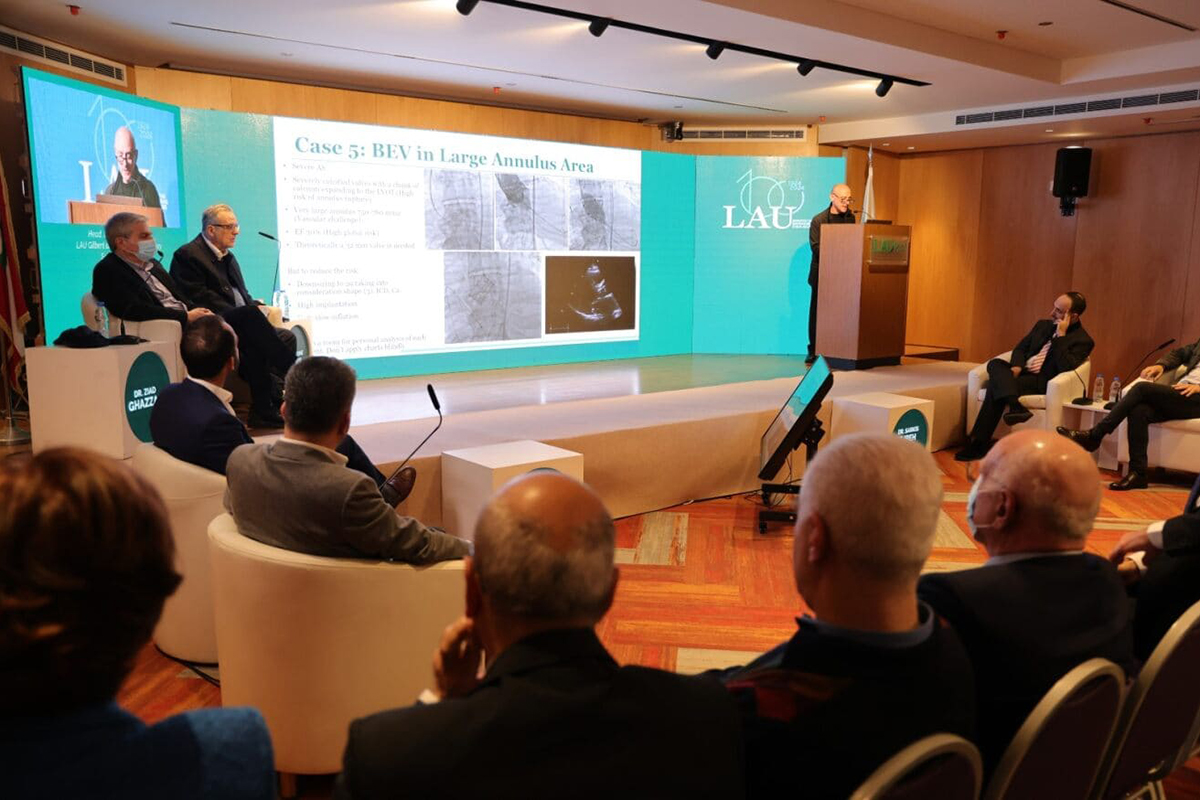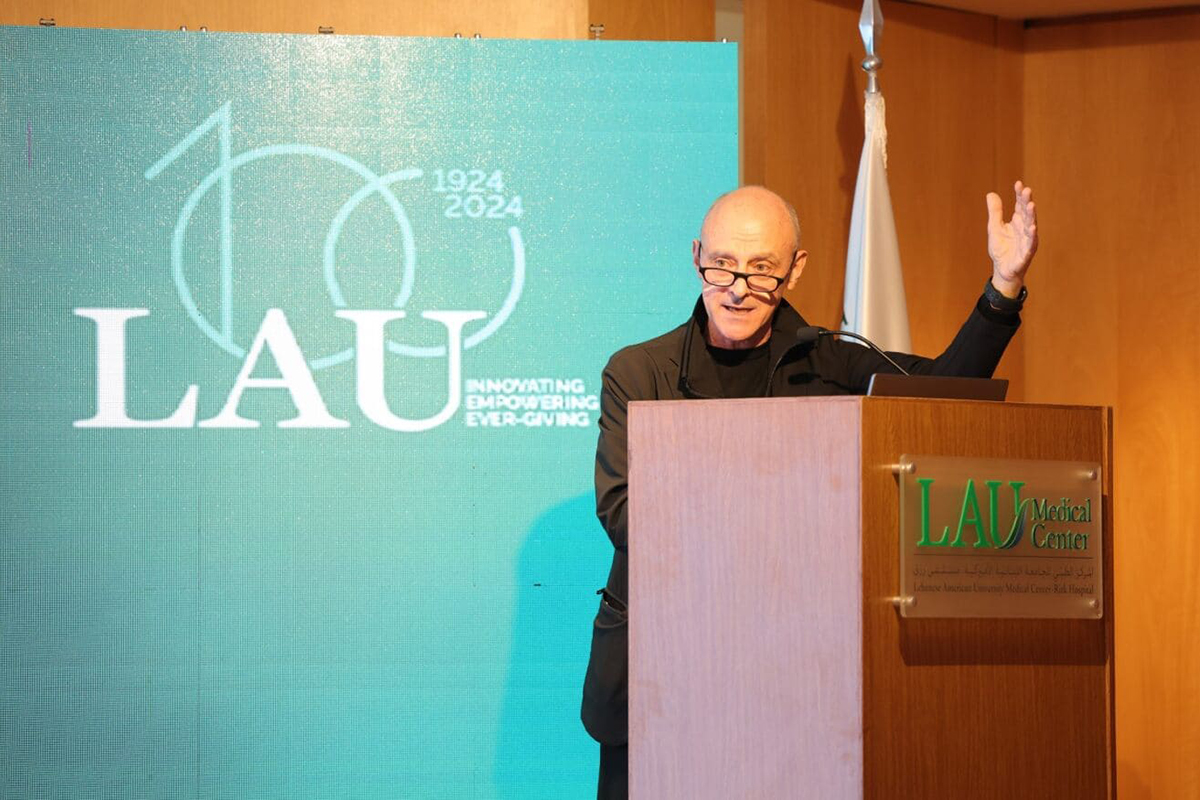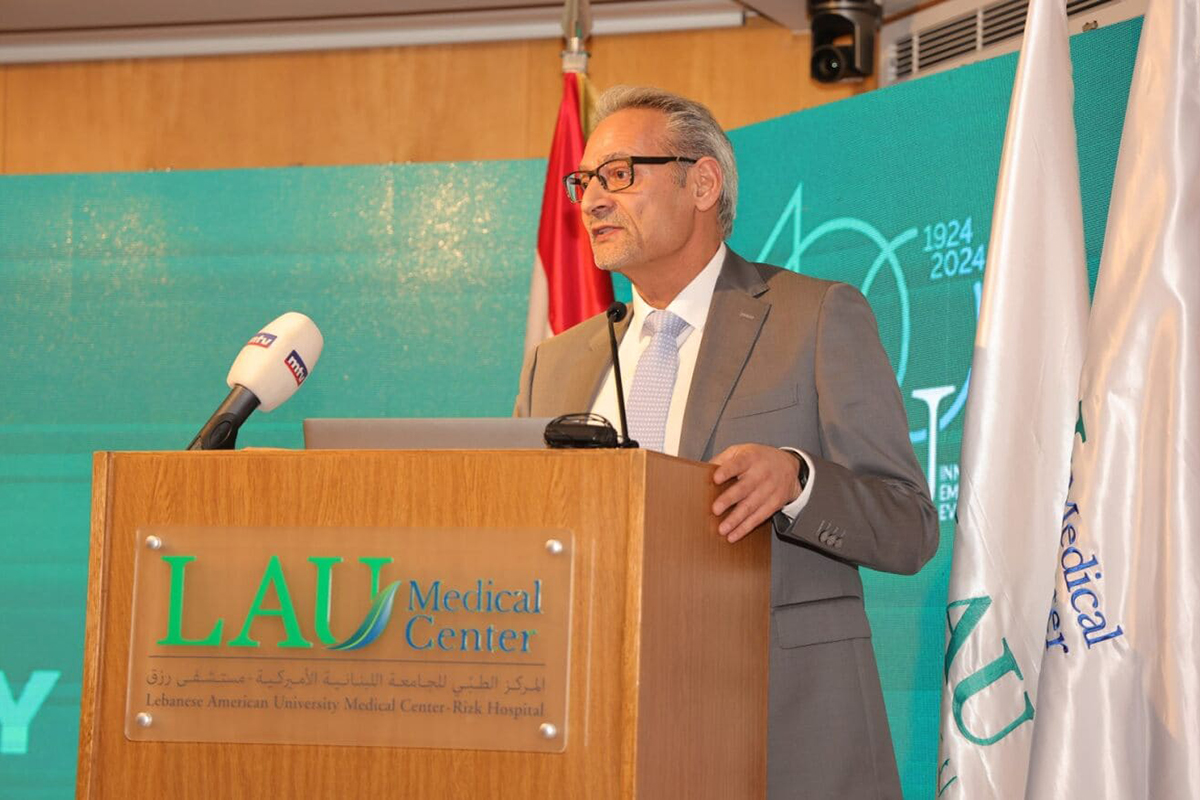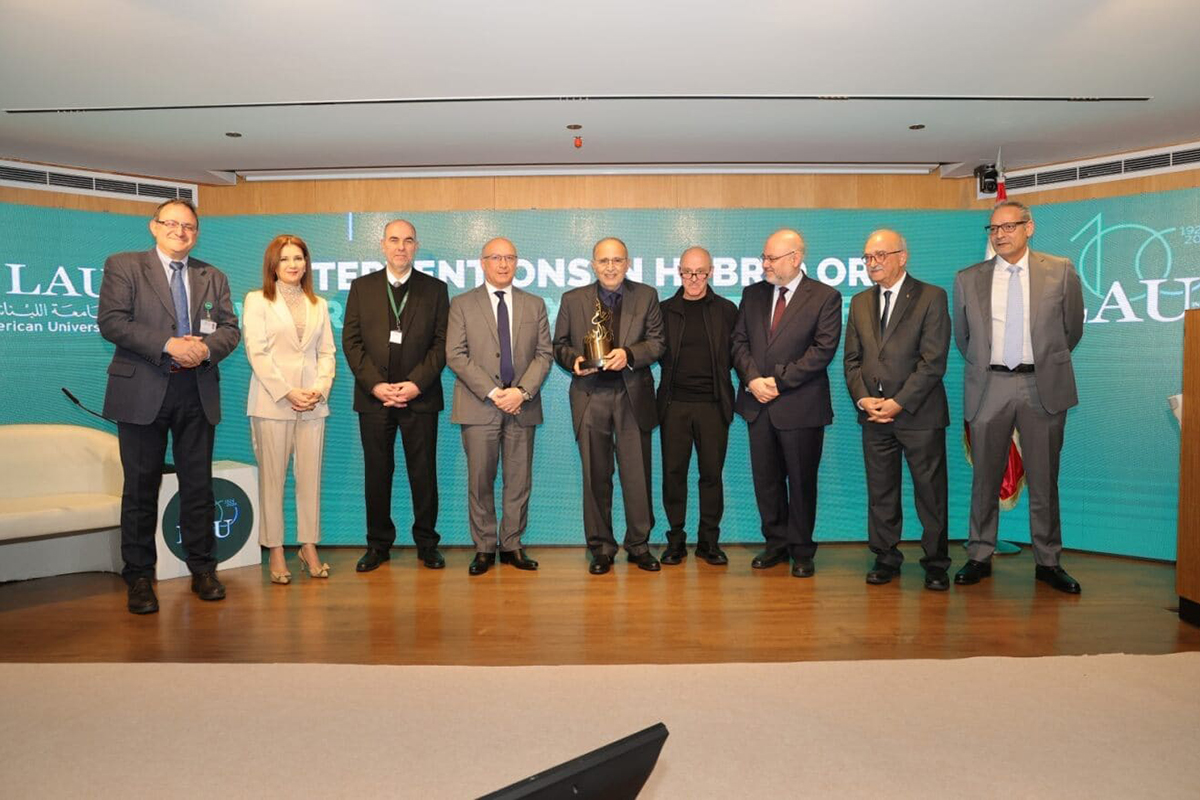A Cardiovascular Conference to Streamline National Expertise
The LAU Medical Center–Rizk Hospital brings together heart and vascular experts to exchange knowledge on effective and safe disease management using advanced technological settings.
The safe integration of cutting-edge technologies in medical practice depends on collaboration and knowledge exchange between healthcare providers. This synergy not only safeguards patient wellbeing but also ensures progress in advancing the field.
To initiate and help establish open communication between cardiovascular specialists in Lebanon, the LAU Medical Center–Rizk Hospital hosted the inaugural national symposium, Interventions in Hybrid OR: Where Complexity Meets Safety, on March 23, 2024.
Organized by the LAU Gilbert and Rose-Marie Chagoury School of Medicine and endorsed by the Lebanese Society of Cardiology and Lebanese Society of Vascular Surgery, the Continuing Medical Education (CME) event featured lectures and panel discussions by medical experts in cardiology and vascular therapy from LAU and sister institutions including the American University of Beirut (AUB), Saint Joseph University of Beirut (USJ) and Saint George University of Beirut.
“It is my solid conviction that only through concerted action and joint effort, and a vigorous CME program ably done by our medical school, can we bring medical practice in our country back to being the most advanced in the region,” said LAU President Michel E. Mawad.
The event not only served as an academic forum for local practitioners and field leaders on the latest cardiovascular interventions, but it also highlighted the critical need for advanced technological settings, such as the medical center’s Hybrid Operating Room, to safely conduct those procedures.
“Top-tier doctors won’t work with inadequate instruments, supplies, or equipment,” said Dr. Firas Abiad, the minister of public health, at the opening ceremony. “To retain these skilled professionals, we must provide them with an environment where they can perform at their best.”
The state-of-the-art operating room, which was made possible by a grant from the United States Agency for International Development’s (USAID) American Schools and Hospitals Abroad initiative (ASHA), has served to optimize innovative education, surgical outcomes, patient-centered care, and foster collaboration between health professionals. USAID administers the US foreign assistance program providing economic and humanitarian assistance in more than 80 countries worldwide.
Merging a traditional operating room with an image-guided interventional suite, the Hybrid OR allows for highly intricate, advanced surgical cardiac, vascular, lung, neuro and spine procedures involving teams from various disciplines. It enables clinicians to diagnose and treat patients in one place, minimizing risks and delays, enhancing patient safety and ultimately cutting costs.
Moreover, the high-tech room complements the medical center’s longstanding implementation of the Heart Team concept, a collaborative model in which various cardiac specialists—including interventional cardiologists, general cardiologists, cardiovascular surgeons and cardiovascular imaging specialists—confer to assess a patient’s condition and provide treatment recommendations.
“The Hybrid OR isn’t just a technical platform; it’s a philosophy of work, a meeting point for experts from diverse backgrounds dedicated to advancing cardiovascular medicine,” emphasized Dr. Georges Ghanem, clinical professor at the school of medicine, head of the Division of Cardiology at the medical center and chair of the conference.
In addition to comprehensive presentations on the importance of the Hybrid OR setting in treating cardiovascular cases like TAVI, MitraClip, and AFib, the second part of the symposium, moderated by co-chair of the conference, Dr. Fadi Hayek, clinical associate professor at the school and head of the Division of Vascular Surgery, showcased an array of endovascular procedures including abdominal and thoracic aortic aneurysms (EVAR-TEVAR), visceral artery endovascular repair and hybrid repair for aortoiliac occlusive disease.
“Our hybrid OR has not only been a place of healing, it is also an incubator of knowledge where the next generation of medical professionals witness and contribute to groundbreaking advancement,” stressed Dr. Sola Aoun Bahous, dean of the school of medicine.
Case in point, the room was the theater of the first pulsed-field ablation procedure in Lebanon conducted in January by Dr. Johny Abboud, clinical assistant professor and program director of the cardiology fellowship at LAU’s Gilbert and Rose-Marie Chagoury School of Medicine.
Dr. Joe Hatem, renowned as the father of modern cardiac surgery in Lebanon was recognized at the event for his lifelong dedication to advancing the field and saving lives. He oversaw the first angioplasty surgery in the country done by Dr. Samir Alam at the American University of Beirut Medical Center in 1981 and the first TAVI surgery in 2012 which was performed by LAU’s own Dr. Ghanem at the medical center. “Even though I am a cardiac surgeon,” said Dr. Hatem, “I was the one who covered all the procedures that could be done without surgery. And I am proud of this.”



